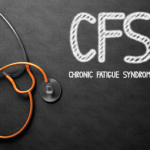In addition, Dr. Lahita says patients with CFS and fibromyalgia must be differentiated solely on clinical grounds because no biomarkers exist for either condition. “Fibromyalgia has a considerable pain component to it, but patients with this illness often have crossover criteria with CFS,” he says.
Donald Goldenberg, MD, chief of rheumatology, Newton-Wellesley Hospital, and professor of medicine, Tufts University School of Medicine, Newton, Mass., does not see a need for the new diagnostic criteria. “It isn’t substantially different from prior criteria and mistakenly omits the essential criteria that CFS is diagnosed only after all other medical and psychiatric illness that could create the symptoms have been adequately excluded,” he says.
Another problem with the report, according to Dr. Goldenberg, is that it fails to integrate the overwhelming evidence that CFS and fibromyalgia are part of the same spectrum of illness.
“Widespread pain is an important component of CFS,” Dr. Goldenberg says. “This report is focused on isolating CFS and identifying its uniqueness. However, most physicians believe that focusing on the overlap and the spectrum of related illnesses, including fibromyalgia and CFS, is the key to eventually better understanding and therapy.”
Dr. Lahita says patients might benefit from the new diagnostic criteria because they can now accept the fact that their condition is real. “The precipitating and perpetuating factors within the illness need quantification,” he says. “But [because] no therapy for the illness exists, despite many anecdotes and suggested remedies, the diagnosis will offer little to the patient except psychological comfort.”
New Name, New Code
To convey the complexity and severity of ME/CFS, the committee also recommended that the disorder be renamed “Systemic Exertion Intolerance Disease” (SEID). The committee, along with many ME/CFS patients, believe the term chronic fatigue syndrome perpetuates misunderstanding of the illness and fosters a dismissive attitude from healthcare providers and the public. The committee also recommended that the condition be assigned a new code in the International Classification of Diseases, 10th edition.
Dr. Kaplan supports renaming CFS, as well as the new code. “This would greatly enhance its credibility as a true disease and not just a constellation of vague symptoms,” he says. “The term systemic highlights the systemic features of this condition, such as sore throat and lymphadenopathy, and emphasizes that it is not just about feeling tired. The new name also suggests that the entity may be just one of a number of exertional-intolerance diseases, which may also include fibromyalgia.”


